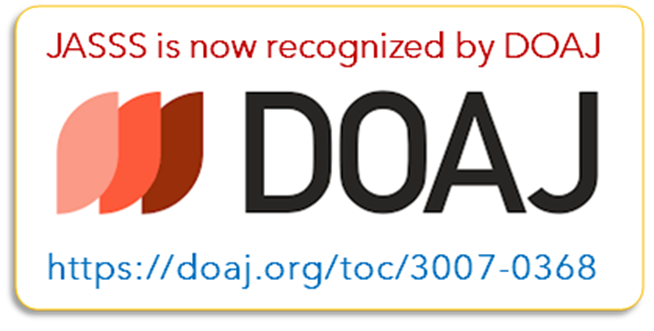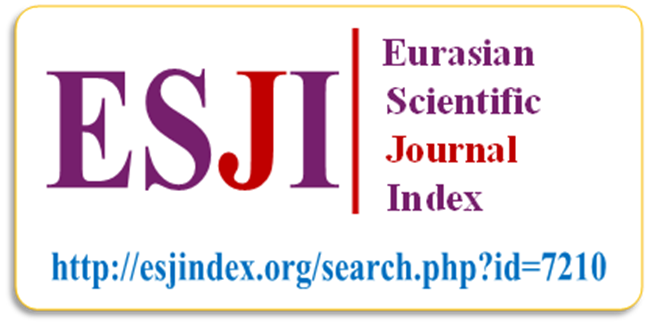A Proposed Workload Policy in the Zambian Higher Education Sector: A Business Re-Engineering Approach
DOI:
https://doi.org/10.5281/zenodo.15345778Keywords:
Workload policy, Zambian Higher Education Sector, Business Re-Engineering ApproachAbstract
The purpose of the study was to assess the workload policy adopted by universities in the Zambian Higher Education Sector. It utilized regression analyses, revealing weak correlations between time allocated to teaching, research, and community service with total faculty workload. Specifically, teaching had an F-statistic of 1.333 (p = 0.265), research and innovation F = 0.821 (p = 0.513), and community engagement F = 1.857 (p = 0.138), with R² values of 0.02, 0.017, and 0.028, respectively, indicating minimal explanatory power. The study's key challenges factors (KCFs) scale demonstrated good internal consistency with a Cronbach's alpha of 0.783. Motivational theories applied included Equity Theory, Herzberg's Two-Factor Theory, and Vroom's Expectancy Theory, emphasizing fairness, recognition, and alignment between rewards and effort to enhance faculty motivation. Qualitative findings indicated that faculty in private institutions often faced excessive workloads, teaching four or more courses per semester, with large class sizes exacerbating the issue. Public institutions had structured policies, allocating 40% of faculty time to teaching, 40% to research, and 20% to administrative duties. The study concluded that both public and private institutions should refine workload policies to improve faculty well-being and institutional performance, recommending clear, sustainable policies to address excessive workloads, especially in private institutions, to promote academic excellence, improve faculty retention, and ensure long-term institutional success.
Downloads
References
Ahmad, A., 2015. Evaluation of workload and its impact on satisfaction among pharmacy academicians in Southern India. Journal of Clinical and Diagnostic Research.
Alimi, B.G., Ismaila, U., Isa, R. and Garba, A., 2020. Consequences of motivation on medical staff performance of some selected public hospitals in Maiduguri, Borno State, Nigeria. Journal of African Sustainable Development, 17(2), pp. 1-15.
Anderson, D., Johnson, R. and Saha, L., 2002. Changes in academic work. Curtin University of Technology.
Anasi, S.N., 2020. Perceived influence of work relationship, workload and physical work environment on job satisfaction of librarians in South-West, Nigeria. Global Knowledge, Memory and Communication, ahead-of-print.
Amer, S. A. A. M., Elotla, S. F., Ameen, A. E., Shah, J., & Fouad, A. M. (2022). Occupational burnout and productivity loss: A cross-sectional study among academic university staff. Frontiers in Public Health, 10, Article 861674. https://doi.org/10.3389/fpubh.2022.861674
Ball, R., 1980. Allocation of academic staff in universities. Higher Education, 9(4), pp. 419-427.
Boyd, L., 2014. Exploring the utility of workload models in academe: A pilot study. Journal of Higher Education Policy and Management, 36(3), pp. 315–326.
Comm, C.L. and Mathaisel, D.F.X., 2003. A case study of the implications of faculty workload and compensation for improving academic quality. International Journal of Educational Management, 17(5), pp. 200–210.
Dobele, A.R. and Rundle-Theile, S., 2016. Shifting sands: Observing academic workloads over time. In: M. Obal, N. Krey and C. Bushardt, eds. Let’s Get Engaged! Crossing the Threshold of Marketing’s Engagement Era. Cham: Springer, pp. 1-20.
Dlamini, N. G., & Dlamini, N. D. (2024). Understanding the well-being challenges confronting academic staff in South African universities: A narrative review. Discover Education, 3, Article 9. https://link.springer.com/article/10.1007/s44217-024-00089-8
Fairweather, J.S., 1993. Academic values and faculty rewards. The Review of Higher Education, 17(1), pp. 1-15.
Graham, A.T., 2015. Academic staff performance and workload in higher education in the UK: The conceptual dichotomy. Journal of Further and Higher Education, 39(5), pp. 665–679.
Gregory, M.S.J. and Lodge, J.M., 2015. Academic workload: The silent barrier to the implementation of technology-enhanced learning strategies in higher education. Distance Education, 36(2), pp. 211–224.
Houston, D., Meyer, L.H. and Paewai, S., 2006. Academic staff workloads and job satisfaction: Expectations and values in academe. Journal of Higher Education Policy and Management, 28(1), pp. 17-30.
Muramalla, V. S. R., & Alotaibi, K. A. (2019). Equitable workload and the perceptions of academic staff in universities. International Journal of Educational Organization and Leadership, 26(2), 1–19. https://doi.org/10.18848/2329-1656/CGP/v26i02/1-19
Inegbedion, H., Inegbedion, E., Peter, A. and Harry, L., 2020. Perception of workload balance and employee job satisfaction in work organisations. Heliyon, 6(1), e03160.
Iris, V., 2009. The impacts of different types of workload allocation models on academic satisfaction and working life. Higher Education Quarterly, 57(4), pp. 499–508.
James, R. Seaberg, 1998. Faculty reports of workload. Journal of Social Work Education, 34(1), pp. 7-19.
Kenny, J.D.J. and Fluck, A.E., 2014. The effectiveness of academic workload models in an institution: A staff perspective. Journal of Higher Education Policy and Management, 36(6), pp. 585–602.
Kenny, J.D.J. and Fluck, A.E., 2014. Workload models for academic staff: Lessons from Australian universities. Journal of Higher Education, 16(4), pp. 56-70.
Mokonyama, M. and Nyirenda, D., 2023. Workload and compensation imbalances in African universities: The case of Zambia. International Journal of Higher Education, 17(2), pp. 232-246.
Musheba, M., Chibamba, G. and Mulenga, E., 2022. Faculty workload and motivation in Zambian higher education. African Journal of Educational Management, 9(1), pp. 67-82.
Nyondo, T.S., 2021. Workload management and faculty compensation in Zambian universities: A need for reform. International Journal of Educational Policy and Leadership, 9(3), pp. 245-263.
O'Meara, K., Lennartz, C., Jackson, M. and Kramer, M., 2019. Workload distribution and faculty satisfaction in academia. Journal of Faculty Development, 33(2), pp. 122-134.
Ojo, E., 2020. Academic workload and its impact on faculty job satisfaction in Nigerian universities. International Journal of Academic Research, 9(2), pp. 78-91.
Papadopoulos, A., 2017. Workload allocation models in higher education: A comparative analysis. Journal of Educational Administration, 29(3), pp. 21-35.
Parks, L., et al., 1998. Redefining faculty workload in higher education. Journal of Higher Education, 69(5), pp. 484-503.
Phiri, K., 2021. Workload allocation and faculty morale in Zambian public universities: The role of transparency and fairness. Zambia Journal of Higher Education, 14(1), pp. 50-64.
Probert, B., 2013. The changing roles of academics: Teaching, research, and service. Journal of Higher Education, 37(2), pp. 49-56.
Sidhu, R. and Srinivasan, P., 2020. Academic workload and faculty satisfaction in Indian universities. International Journal of Educational Studies, 14(3), pp. 153-169.
Smith, A.P. and Smith, K., 1988. Effects of workload and time of day on performance and mood. In Megaw, E.D. (Ed.) Organizational Behavior and Human Decision Processes, pp. 431-450, Cambridge: Cambridge University Press.
Taylor, R. and Parsons, D., 2007. Faculty workload and student outcomes: A national study. Journal of Higher Education Policy, 79(4), pp. 279-292.
Turner, M. and Roberts, T., 2017. Faculty workload and institutional reputation: A study of public versus private universities. Journal of Higher Education Administration, 58(2), pp. 134-149.
Zhao, J. and Liu, X., 2019. Workload, stress, and work-life balance: A study of faculty experiences at teaching-focused institutions. Higher Education Research & Development, 38(5), pp. 1020-1034.








